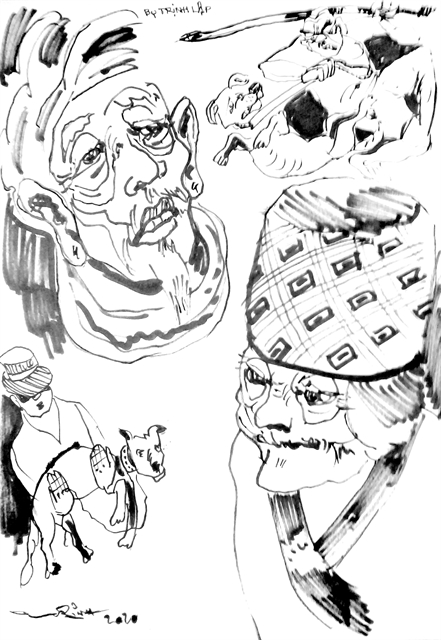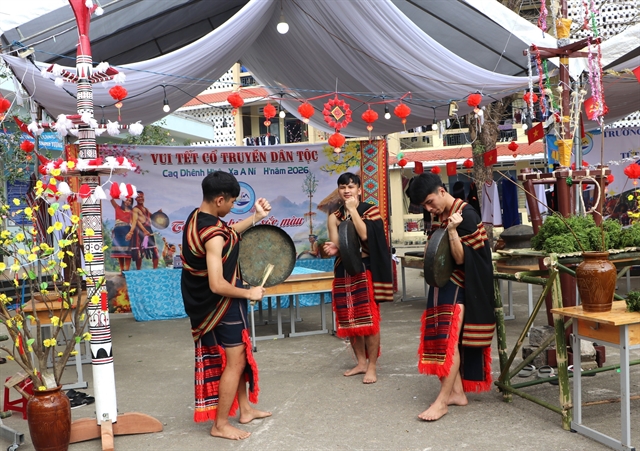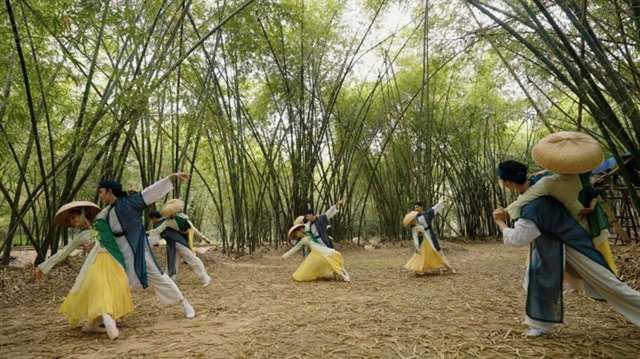 Talk Around Town
Talk Around Town

Young people related to the video because of the bond between the dog and its owner, but those of the older generations were moved as a story they had read in classical literature had come to life.
by Nguyễn Mỹ Hà
Dog lovers in Việt Nam recently shared a moving clip about an ethnic Mông woman crying when she had to sell her beloved dog due to her desperate poverty.
Young people related to the video because of the bond between the dog and its owner, but those of the older generations were moved as a story they had read in classical literature had come to life.
Writer Nam Cao depicted the misery of poor people in the countryside in his short story Lão Hạc (The Old Hạc), published in 1943. The eponymous main character had to sell the dog he had named Golden Boy. The prose was beautifully written and touched the hearts of millions of school children.
When a collection of his short stories were made into the black and white movie Làng Vũ Đại ngày ấy (Vũ Đại Village in the Old Days) in 1982 by director Phạm Văn Khoa, the scene where Lão Hạc told his neighbour, a teacher, that he had to sell Golden Boy was overwhelmingly touching.

|
| Illustration by Trịnh Lập |
"I had to sell Golden Boy, Mr Teacher," says Lão Hạc.
"Well, maybe he will come back to a better afterlife," the teacher says.
"Do you think he will come back to be a man, like me, to have a better life?"
"Old man, if he could come back to be like me, would his life be any better?" says the teacher, who was the intellectual of the village. He represented the desperate situation of the intellectuals, who were stuck in their positions, not any better than the destitute peasants.
Nam Cao was famous for saying he became a writer because he desperately needed money to buy medicine to treat his daughter's scabies.
The lives of poor peasants in Việt Nam before the August Revolution in 1945 were hard beyond our imagination today. Books and movies have tried to depict how tough they were, but the reality was even worse.
In March 1945, a horrifying famine took place in northern Việt Nam that took the lives of nearly 2 million people. The famine was partly the result of Japanese invasion of French Indochina in 1940, then ordered all food crops to be replaced with jute.
Some historians believe that the August Revolution in 1945 was successful as millions of people rose up to kick open Japanese rice storehouses to give rice to the hungry peasants.
Last year, the film crew for the movie Cậu Vàng (Golden Boy the Dog), started casting for the main character. Many dogs of different breeds were auditioned including huskies, golden retrievers, and last but not least, a Shiba Inu, the world-famous Japanese breed with a happy smile, which does look quite similar to Vietnamese dogs.
There was a large amount of opposition when the Japanese dog was cast, with many arguing a Vietnamese dog should have got the part.
Many argued that a beautiful Japanese dog shouldn't play the role of a dog sold by people impoverished due to a famine that was partially caused by the Japanese in one of the darkest chapters of Vietnamese history.
The story is about the dog but it reflects that of his master's.
Some dog meat protesters argued that casting a Vietnamese dog in the main role would help stop people from eating local dogs, a tradition that is becoming less and less popular nowadays.
It's a popular saying in journalism schools that "when a dog bites a man, it's not a story. But when a man bites a dog, that makes a story".
In the tale of the Mông woman's love for her dog, there was no biting. Only tears and a viral story on social media. Thanks to social media, a kind-hearted man made sure there was a happy ending to an otherwise sad story.
A dog-lover who breeds rare dogs spent quite an amount of money to purchase the dog and then travelled 140km to the Mông woman to give it back to her as a gift.
He also helped raise public awareness about the Mông woman and her grandchildren's tough situation and raised some donations to help them out.
Truly a fairytale ending to a harsh story. Life is worth living. VNS




